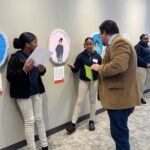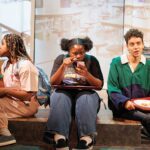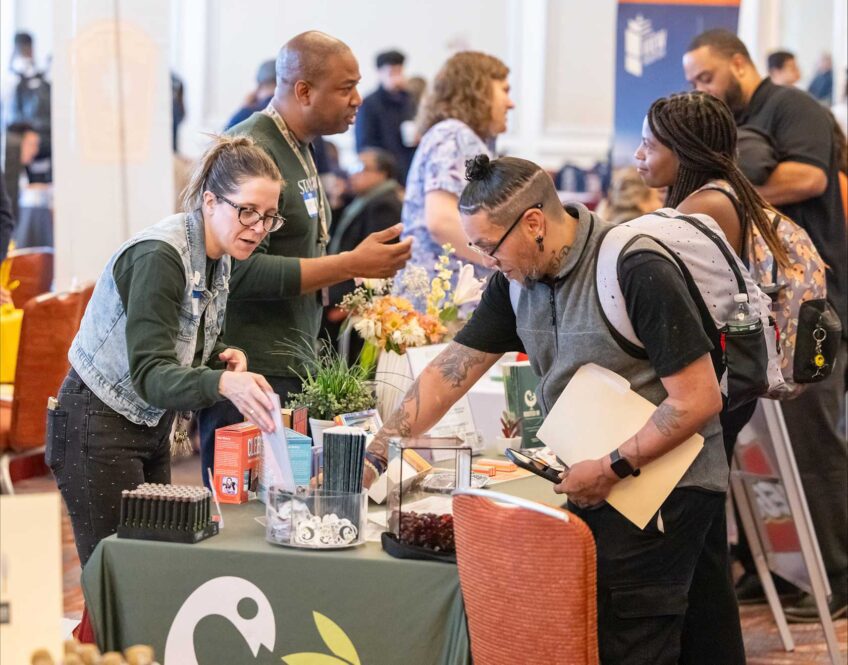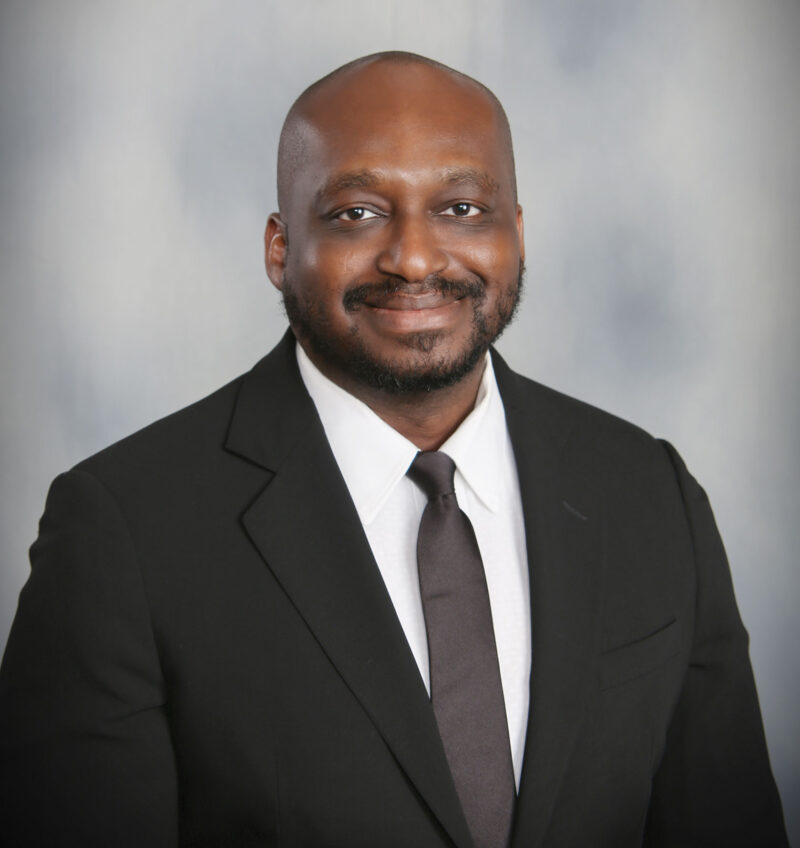A nation pays tribute to King, Boston Youth Symphony Orchestras, others celebrate locally
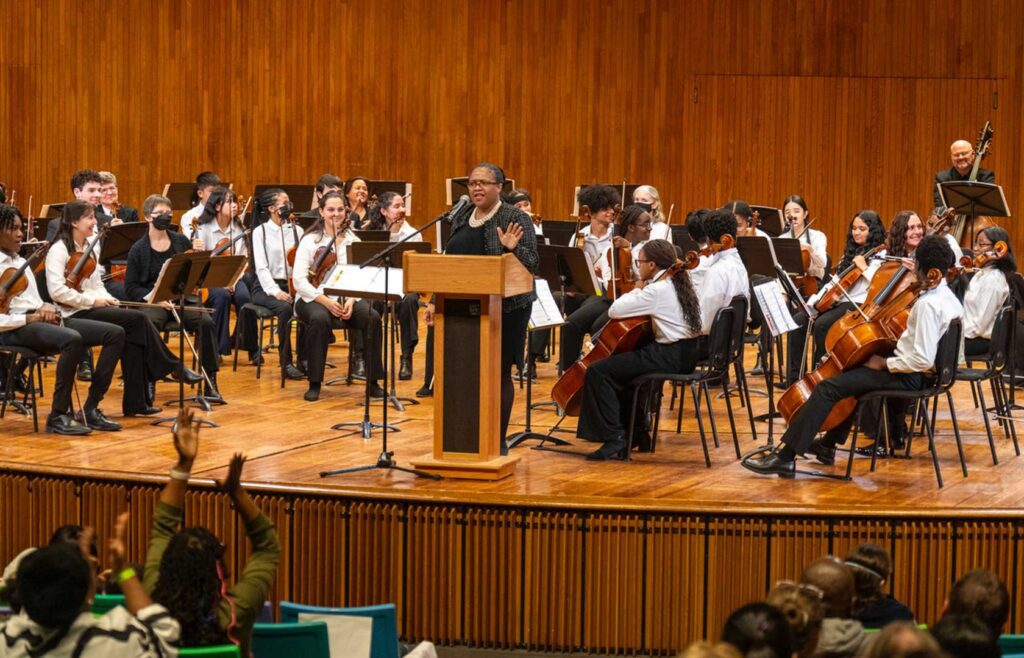
With wavering bows, string musicians from the Boston Youth Symphony Orchestras delivered a sobering performance Monday in tribute to slain civil rights leader Martin Luther King Jr.
Music shifted, lilting and soaring inside MIT’s Kresge Auditorium, while performers read from King’s own words highlighting the importance of children in social change.
“We are living in challenging times is probably the best word,” said Noelle Trent, president of the Museum of African American History, who said the concert was a call to action. “My hope is that when people walk out of here today, they are inspired to figure out what is their thing.”
Monday’s concert was one of scores of MLK Day events held in Boston and across the country, as people paused to remember King’s social justice activism, resilience and aspirations.
In Allston, the city of Boston partnered with Boston University to recognize the work and legacy of King, who would be 95 today. In Dorchester, nonprofit City Year Greater Boston brought hundreds of volunteers for a day of service to repaint the Holmes Innovation School.
In Springfield, Rep. Ayanna Pressley, speaking at the 42nd Annual Dr. Martin Luther King Jr. Memorial Scholarship Breakfast on Jan. 13, celebrated local students and civil rights leaders and reflected on the totality of King’s impact.
“Too often, and especially in January, his legacy is wholly defined as that of a peaceful protester with a dream,” she said in remarks. “The whole truth is that Dr. King was a proud and unapologetic Black man, a prophetic preacher and radical dreamer with a bold vision for revolutionary change.”
The MLK Day concert, the orchestra’s 17th, was held at MIT in collaboration with the African American museum.
It was performed by a special orchestra made up of members of the Intensive Community Program — a BYSO initiative that supports young musicians from underrepresented groups — and invited student musicians from the organization’s other youth orchestras.
The event showcased a mix of spirituals, freedom songs and classical music by Black composers, while also focusing on the community.
“Hopefully it … brings us together to celebrate a very meaningful person and a day,” said Marta Zurad, who conducts the organization’s Intensive Community Program and Young People’s String Orchestra.
Trent, in a keynote address, said the performances highlight significant compositions from the African American community and the history of concerts that advanced the Civil Rights Movement.
It included compositions from George Walker, William Grant Still, Florence Price and Joseph Bologne, Chevalier de Saint-George. It concluded with a sing-along featuring “This Little Light of Mine,” “Amazing Grace” and “We Shall Overcome.”
Readings, interspersed with the musical performances, drew from a 1965 speech King gave to the Massachusetts legislature following the passage of the 1964 Civil Rights Act and the march from Selma to Montgomery, Alabama.
Trent said King’s words fall in a gap between his “I Have a Dream” speech in 1964 and his assassination in 1968 and demonstrate that King was concerned about practical matters.
“He wasn’t concerned about a dream. He was concerned about the very real circumstances affecting people’s lives — some of which are still affecting people’s lives today,” Trent told the audience.
The performances also centered on children and their historic role in the fight for civil rights. Young people, from the past and today, have famously led the marches and protests demanding change.
“Our lesson from Dr. King — and if we just look at this fabulous orchestra — is we don’t do this thing alone,” Trent told the audience. “We do it together. We work together, each playing our own part in our unique voice to the vast symphony of social justice, persevering and not forgetting that there is still more to do.”


![Banner [Virtual] Art Gallery](https://baystatebanner.com/wp-content/uploads/2024/05/PFW_3-150x150.jpg)
